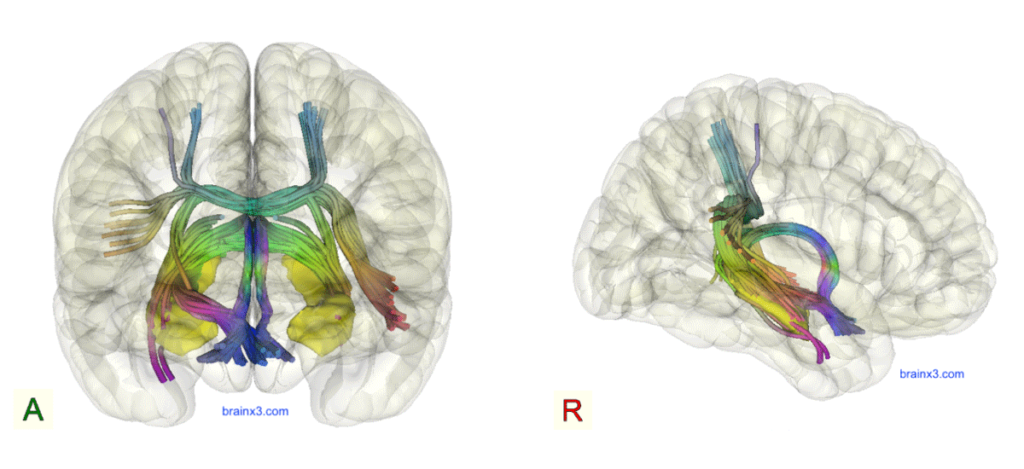The SPECS Lab at IBEC has identified, for the first time in humans, the physiological mechanism responsible for effective learning processes based on self-motivation and freedom of choice.
23.04.2021. Active or voluntary learning is a major topic in education, psychology, and rehabilitation practices after brain damage. Over the years, numerous studies have shown that when learning occurs through voluntary action, there is a modulation of attention, motivation and cognitive control that makes the process much more effective. Consequently, memory is benefited. Nevertheless, whereas the physiological processes underlying this reality has been identified in the brain of mice, their existence in humans had not been yet confirmed.
Now, an international group of researchers led by ICREA Research Professor Paul Verschure from the SPECS laboratory at the Institute for Bioengineering of Catalonia (IBEC) and Professor Nikolai Axmacher from the Department of Neuropsychology at Ruhr-Universität Bochum (Germany), in collaboration with Pompeu Fabra University and Dr. Rodrigo Rocamora from Hospital del Mar, have identified for the first time in humans, the mechanism responsible for this phenomenon.
“The key lies in the oscillations of theta waves generated by the hippocampus of the human brain, when it is the brain that has control of the learning process.”
Memory and individual freedom
This work – published in the prestigious scientific journal PNAS URL in March 2021 – is based on an experiment carried out with epilepsy patients that had recording electrodes implanted in several areas of the hippocampus and cortical regions relevant for learning and memory. In a virtual reality game, participants navigated a square track, and were asked to recall images of objects presented at different locations on the track. Navigation could be active, whereby participants freely controlled their movements; or passive, if it was another subject who planned the route and, therefore, who decided the order of exposure to the images. In this second modality, therefore, the subjects did not exercise any control over how to memorize the dispersed objects in the virtual environment.

The hippocampus and its main fiber tracts frontal (A) and side (R) views
By studying the electrophysiological activity of the hippocampus and testing the recognition of the objects at the end of the experiment, the researchers were able to verify the importance of active learning in each of the participants. “In the subjects who had had the possibility to carry out active navigation, an increase in theta oscillations was identified that made learning and subsequent memory more efficient. In addition, we observed that there were two consecutive phenomena, separated by milliseconds. One of them corresponded to the encoding of the information; the other, was the retrieval of previously stored information or “the reactivation of memory“.
“Indeed, the subjects who could freely navigate through the virtual environment promoted a theta phase code that favoured the fixation and retrieval of information” (Daniel Pacheco, 1st author).
Learning and rehabilitation implications after brain damage
The results of this work are particularly relevant in the context of recovery of function after brain damage and the application of the principles underlying effective neurorehabilitation approaches.
The implication of these results for the recovery of motor and cognitive function after brain damage such as stroke, is that rehabilitation strategies should be planned to consider active learning and goal-oriented recovery strategies tailored to the ability of each patient to interact and learn from their training environment and actively control their progress.
Learning and psychological implications
The practical applications of this discovery are far-reaching and profound. “Identifying these two different moments in theta oscillations could facilitate concrete interventions. For example, we could manipulate the oscillation to modify traumatic loss of memories and cognitive function (i.e after stroke), or enhance memories that are lost due to amnesia or neurodegenerative diseases“. In addition, it has great relevance in the rehabilitation and educational fields in general, since it empirically confirms that elements such as motivation, cognitive control and the ability to decide for oneself are key to effective learning.
Check the video with Paul Verschure one of the authors of the study:
“The significance of this discovery is enormous,” says Paul F. M. J. Verschure, ICREA Research Professor and SPECS Group Leader at IBEC,. “We have managed to get to this point after more than 20 years of research and the results obtained are clear. The fact that willpower is key to the integration of information in memory gives us arguments to say that, if we turn people into passive subjects, if they are coerced, their learning will be worse.”
Reference: Pacheco Estefan D., Zucca, R., Arsiwalla, X., Principe, A., Zhang, H., Rocamora, R., … & Verschure, P. F. (2021) Volitional learning promotes theta phase coding in the human hippocampus. PNAS. 2021, doi: 10.1073/pnas.2021238118
This article has been republished from the following source . Note: material may have been edited for length and content. For further information, please contact the cited source.
This research received funding from the Horizon2020-EU program under grant agreement of the project ReHyb, ID: 871767; Virtual Brain Cloud project ID: 826421. N.A. and the German Research Foundation) projects 316803389–SFB 1280 and 122679504–SFB 874.